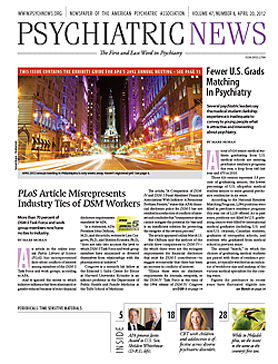Once a year, Howard Book, M.D., an adjunct associate professor of psychiatry at the University of Toronto, can be found in an unexpected place.
It’s the campus of one of the world’s leading business schools—the INSEAD School of Business in Fontainebleau, France—where he teaches, in English, a 20-hour module in its Master’s Program in Clinical Approaches to Management.
Book is doing something he has done for the past 12 years, and loving it—teaching a course to business executives on, as he describes it, “seeing in the dark.”
“This means seeing things that you are unaware of in yourself, in your team, and in the business in which you are a manager or leader,” he explained in a recent interview. “These things are going to affect your relationships with others, and all business is relationship driven. So, if you better understand what is going on within yourself, your team members, and your business, you can become more successful and profitable, and your shareholders will love you more.”
Book, in essence, focuses in his course on psychodynamic concepts that play out in the business world.
He tells his students, for example, that organizations have an unconscious just as individuals do, that the unconscious of an organization can be referred to as a “culture,” and that people in an organization, whether it is the U.S. Federal Bureau of Investigation or a company that makes Barbie dolls, tend to follow certain rules and regulations without consciously realizing that they exist.
He points out to the students that “more and more research demonstrates that decision making is not as logical and rational as we would like, but is based, to a large extent, on hidden biases, undiscovered assumptions, faulty logic, and undisclosed prejudices.”
“We sometimes react to people in our presence not as they actually are, but with the kinds of feelings and attitudes that we had toward our parents as children,” he tells the executives, explaining that “this is what psychoanalysts and psychiatrists call ‘transference.’ Transference is an error in time and space; such feelings, attitudes, and behaviors really belong in the past.”
He talks about reality testing for business people—seeing the world the way it really is. “On one spectrum is denial—sticking your head in the sand or seeing things the way you want to see them—and on the other is catastrophizing—seeing the situation as far worse than it really is,” he explains. “What you want is just the right amount of grounded optimism.”
Projection is also on his agenda. He tells the participants that projection “is seeing in other people parts of ourselves that we cannot tolerate. We accuse others of things of which we ourselves are guilty, or we suspect others of things that we ourselves are doing. It makes us feel good to get rid of parts of ourselves that we don’t like.”
Impulse control is especially critical, Book impresses on his students: “People who have good impulse control have been found to be more successful, to have less trouble with the legal system, to have fewer illnesses, and to live longer.”
Book’s course also includes an experiential component. What he does at this point is—nothing. He just stops talking, stands in front of his class, and waits. And his students’ reactions to his behavior are most interesting, he said.
For example, one might ask, “What’s going on here?” To which he might reply: “Well, I’m just thinking.” Another might ask, “Where’s the case study?” To which he might say, “We’re the case study.” Someone else might get up and yell, “Bullshit!” Sometimes a person even stomps out of the room.
Book explained that he might then speak up and say, “Did you see what happened just now? That is exactly what I was talking about in my lecture this morning about impulsivity—how easy it is to rush into action without thinking, to argue, to tempestuously call people names. So, let’s discuss how this issue of rushing into action without first reflecting about the situation shows itself in your workplace.”
“I give them some information, some didactics, then I take away the structure long enough for them to start experiencing what it is that I’ve been talking about,” Book explained.
How have the executives who have taken his course reacted to it? Most have reported in surveys that they have found it gratifying, Book said. Still others have indicated that they weren’t really sure what the course was all about after they finished it, but that it started to make sense to them a few weeks later. Every now and then Book gets a letter from an executive who attended the course, and the letters are usually positive. Only once can Book recall hearing a negative comment about his course—although he may be repressing more such negative responses, he chuckled.
After one of his courses was over, a student came up to him and complained, “When you talk, you jingle the coins in your pocket too much!” After listening carefully to her complaint, and after noting that it sounded as if she felt distracted by the jingling, he asked her why she hadn’t brought the subject up during the course. Her reply indicated that she was reluctant to behave assertively with people who she felt were authority figures. Book and she then explored this reluctance for a few minutes before they parted company.
Thus, bolstered by generally positive feedback, Book plans to continue on his mission—not only teaching the course at the school’s Fountainebleau campus, but also its Asian campus in Singapore.


